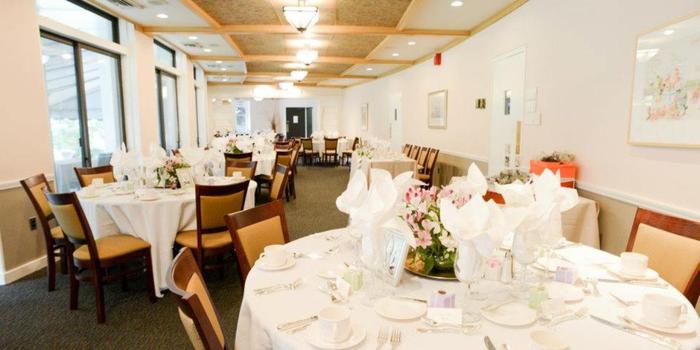On Friday March 18, Elizabeth Niemeyer (Physics ‘94, University of Texas JD) and Emily McNabb (Mathematics AB/MA ’07, Wharton MBA) came to Bryn Mawr to talk about their career paths as part of the Pen Y Groes lunch series hosted by President Kim Cassidy. Niemeyer is a Patent Lawyer at Finnegan in D.C. and McNabb is a consultant at McKinsey & Company, Philadelphia. Most of the student attendees were Math majors. There were three Physics majors present.
I attended the talk because I was interested in Niemeyer’s career as a physics major working in a non-physics job. I was also interested in McNabb’s career from a math background to business and consulting, particularly for healthcare clients. McNabb created an online teaching module that assessed hospitals to identify areas their nurses needed more training in. The educational materials was supplied by Mayo Clinic. I thought this was an innovative, interactive online tool and an example of a public and private sector collaboration between Mayo Clinic and McNabb’s startup.
Much to my surprise, Niemeyer had actually planned on becoming an experimental particle physicist. One year into graduate school for physics, she decided research was not her passion. She met with a career counselor to help her decide a career transition. Together they came up with two values important to her: being around people who are intelligent and arguing in respect. Niemeyer was directed toward patent law because she could work with scientific results without the experimental labor. She then attended University of Texas for her JD and worked at Finnegan, specializing in intellectual property rights, ever since graduating. There are three aspects of patent law: prosecuting, licensing, or litigation. Niemeyer works in litigation, which she described as “helping clients, primarily in the electrical and semiconductor devices industries, obtain and assert patent rights, and defend against claims of patent infringement through litigation in district courts and the International Trade Commission.” She enjoys the teamwork, collaborative process and the connection between the technical aspect of universal/scientific laws and the pure law aspect of man made rules. (Coincidentally, I applied for a patent law summer internship at the US Patent and Trademark Office through USA Jobs. They required you to have a background in engineering, computer science, or general science. I never heard back from them, but I got through two rounds of application review.)
McNabb’s first internship during her junior and senior years of college was with Medtronic, the inventors of the pacemaker. She did not specifically plan to work in the healthcare field as a math major, but ended up continuing in the field because that was just what her first internship experience was in. After college, she took positions at Accenture Consulting and later, Genetech Biotechnology. After her venture into the nurse training platform, she started to miss the consulting and business life. She entered the Wharton MBA program and landed a job at McKinsey Consulting working with their healthcare clients. She has been there ever since. Her wife also works at McKinsey in the office right next door to hers.
One of the questions for the alumnae was how much of their liberal arts college degree and skills factored into their jobs. Niemeyer’s response was that her team employs separate engineers to visit sites for clients because clients would typically trust the engineers instead of the lawyers. The patent law field is very vast. There was one time where she worked on a pharmacology case. Another time she worked on an optics case and actually took out an optics book to refresh her memory. McNabb’s response was that consulting did not look specifically for hard skills in employees, but critical thinking skills — something you learn at Bryn Mawr and the liberal arts. Both also cited curiosity, drive, teamwork, and comfort with ambiguity as personality traits important for their jobs. Their piece of advice for current students was to take any opportunities they come across because sometimes you just end up there by chance and grow to enjoy it. I could not agree more with this advice.
Reflecting on my own future career path, I do not think I will pursue physics after my undergraduate degree. I am strongly leaning toward a Master’s in Nursing with a Ph.D in Nursing Research and Informatics (MSN or RN, Ph.D), or a Doctorate in Nursing Practice (DNP). Prior to Bryn Mawr, I thought I might be a civil engineer or doctor. I expected my summers to be filled with summer research in a lab. Instead, I found myself in summer internships that had nothing to do with my major or my ideal career… I think I have taken advantage of most of the opportunities that have come my way (I wasn’t necessarily accepted into everything I applied to, but you get the point). I really appreciated hearing from Bryn Mawr alums in careers not directly related to their majors. It is inspiring because I am also pursing a career not directly related to my major. These were words of experience and advice that I needed to hear.
